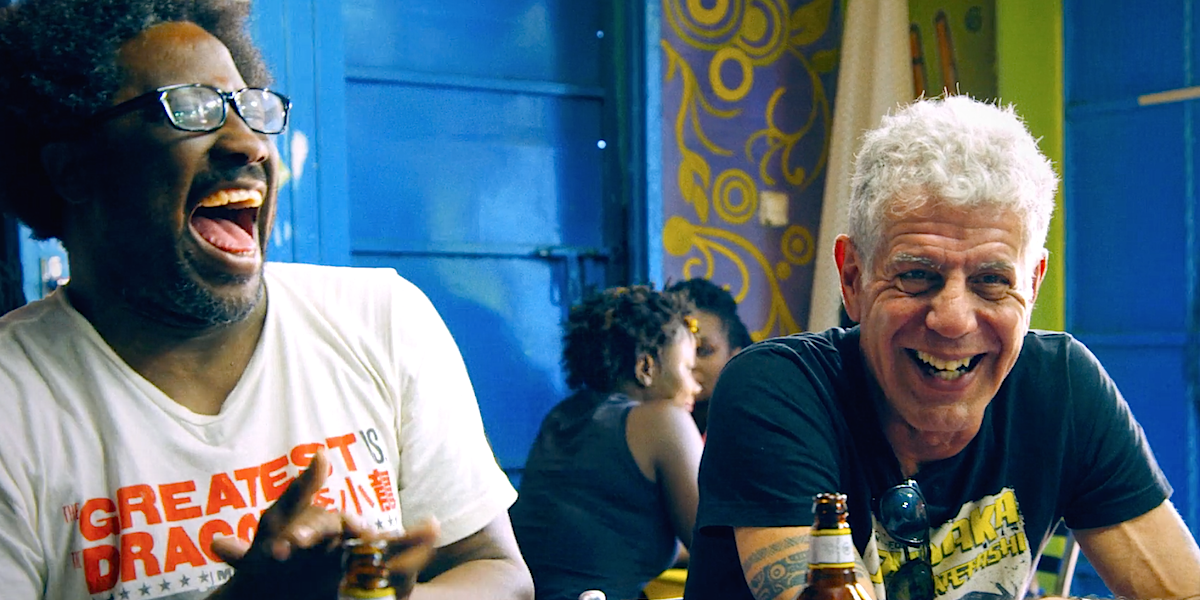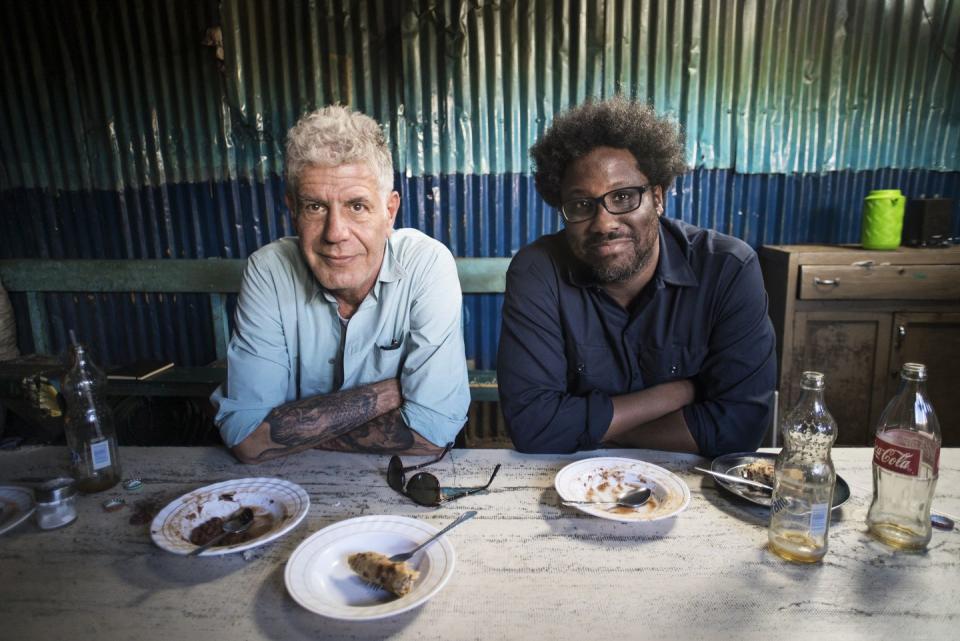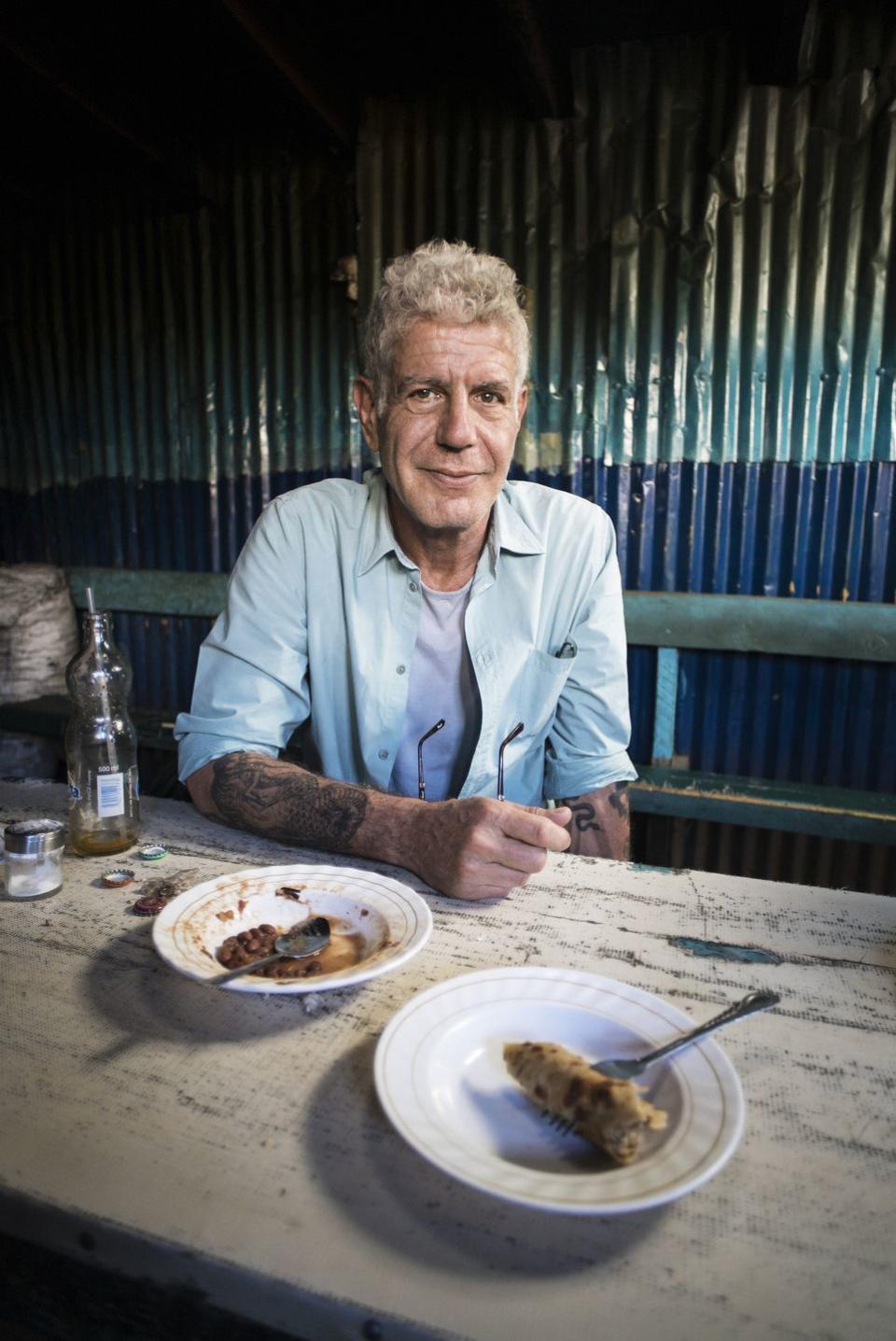Anthony Bourdain's Final Full Hour of Television Is Just Another Episode. That's What Makes It So Special.

Anthony Bourdain’s final completed episode of television feels very much like any other hour-long program he’s made in the last 17 years. He travels to Kenya, where he brings his thoughtful worldview, his fearless questions, and his genuine interest in listening to the smallest and most important stories. There’s no mention that its host died nearly four months ago. There’s no “in loving memory” dedication to the late icon. It’s just an episode of Anthony Bourdain: Parts Unknown. It’s as provocative, considerate, and curious as anything else he produced in his lifetime. And that’s precisely what makes it so special and heartbreaking.
There will never be anyone quite like Anthony Bourdain. And even if there’s someone similar who can take his place, it will be decades until someone else builds the credibility and experience that Tony had built through 238 episodes of No Reservations and Parts Unknown. There will never be another full episode of Anthony Bourdain. Yes, this final season of Parts Unknown will continue, including a few episodes that Bourdain had filmed. But this was the last one he’d completed before his death, featuring his legendary, pensive commentary.
Bourdain travels to Kenya with comedian and writer W. Kamau Bell, who hosts CNN’s United Shades of America. Bell has never set foot on the continent. Bourdain has, well, many times, and as he says at the top of the episode: “There’s a mischievous curiosity tucked away in some poisonous part of my brain that’s dying to see how Kamau handles the heat, the spice, the crowds, the overwhelming rush of a whole new world.”
And that’s how Bourdain was. Always curious. He wanted to share the world with other people. It’s only fitting that in his final full episode he shares Kenya with Bell. Not as a tour guide, mind you; Bourdain was never an expert telling other people about their own culture. No, Bourdain is a travel companion at Bell’s side, who is equally inquisitive and in awe of the culture and landscape around them. What’s perfect about this episode is Bell functions as a proxy to us, the viewers. If we were in his shoes, on a trip with the most famous traveler in the world, we’d also sit down in a little cafe with Bourdain and point out how we’re currently living a scene that we’ve seen countless time on Parts Unknown (as Bell does during their first meal).
Since his very first episodes of television, Bourdain made an incredible effort to accurately represent the places he visited. This meant going to the small shops and noodle houses. This meant sitting down with grandmas and grandpas. This meant seeking out the stories that would otherwise never get told. And as his own perspective expanded-as his programs got bigger budgets, and he learned how to ask better questions-his ability to create a more representative and inclusive program only got better. Where in the early episodes of No Reservations he was getting drunk with old chef friends, he was more of a cultural arbiter in Parts Unknown, talking politics, history, fashion, literature, art, music, globalism, colonialism, race, climate change, war, religion, and everything else adjacent to food. He taught an entire generation that food is only the gateway to the past, present, and future of any culture.
This final episode showcases this innate quality of Bourdain’s in a brilliant way.

He and Bell delve into the Kenyan fashion industry, where second-hand markets-basically American’s old, donated clothes-have devastated local clothing producers. They chat with members of the Kenyan LGBTQ community, where their lifestyle remains dangerous. They sit with the local arts community, which empowers young people through comedy and music. They discuss colonialism and its lasting effects in the country. They visit professional female boxers. They ride party buses. They go on a safari and observe those Kenyans fighting to stop poachers. They explore identity-specifically Bell’s connection to his African heritage. Of course they also eat goat eyes and drink blood-a Bourdain specialty. And they do all of this, with surprising depth, in an hour of television.
Watching it, knowing this is it-the conclusion to Bourdain’s years of travel and television-there’s a beautiful and unintentional sense of finality. At one point, Bourdain and Bell are sitting on a cliff, drinking a beer, looking out over the grasslands and talking, expressing their gratitude for where life took them to that point. Bell is in awe that he’s sitting with Bourdain. Bourdain is incredulous-still after 17 years-that he gets to do this.
“Look, I will tell you, after 17 fucking years, and as soon as the cameras turn off, and the crew will be sitting around and we’re having a cocktail, I fucking pinch myself because I cannot fucking believe that I get to see this or do this,” Bourdain says. “Because at 44 years old, dunking fries, I knew with absolute certainty that I would never, ever see Rome much less this.”

There’s a tragic irony to this. It’s beautiful. Even during one of his final adventures, Bourdain never took what he did for granted.
And in the end, he passes that attitude onto Bell. In the final scene, Bell and Bourdain are in a small village that had been waiting months for rain. While they’re there, the rain finally starts to fall. The camera lingers on Bell watching the tribe dance, the long-awaited rain splashing on his face. Bourdain is uncharacteristically silent here, letting the moment do the talking as the credits begin to roll.
Then the camera returns to Bourdain, beer in hand looking out over the hills.
"Who gets to tell the stories? This is a question asked often. The answer in this case, for better or worse, is I do. At least this time I do," Bourdain says in his final narration. "I do my best. I look. I listen. But in the end I know. It's my story, not Kumau's, not Kenya's or Kenyans. Those stories are yet to be heard."
Those words, his last to us, are almost chilling to hear, knowing what we know now. And they also offer something of a challenge. For 17 years, he told the stories. Who will tell them now?
('You Might Also Like',)

